Two years have passed since I’ve interviewed the band, and looking back reveals my previous depiction of them as tireless, whimsical wanderers crafting lo-fi, visually-evocative indie pop. Though most of that description still fits, much has changed since then. One might even go as far as saying they’ve matured.
 PHOTOGRAPHY BY TYLER KOHLHOFF
PHOTOGRAPHY BY TYLER KOHLHOFF

LISTENING STATION
Listen to “Trying To Reach You” FROM DRACULA
DOWNLOAD MP3
Listen to “Fever Dreams” FROM DRACULA
DOWNLOAD MP3
Listen to “Wonder Why” FROM DARK JORDAN MIXTAPE (B-SIDES)
MORE SAMPLE TRACKS FROM APPLE’S ACRE BELOW,
ALONG WITH AN OLDER INTERVIEW WITH NURSES
Nurses’ latest record, Dracula, was primarily recorded during a month-long stay on the Oregon Coast, far from the eternally distracting social hubbub of Portland. It was what drummer James Mitchell describes as a “pretty romantic idea” — a musician’s retreat, and a setting devoid of almost all external responsibilities.
“It’s pretty simple, really,” explains bassist and effects master John Bowers. “We wanted to… put all three of us in the same spot with nothing else but music to do.”
Spending such a long time isolated in nature can no doubt be influential on a band’s music. But unlike some Pacific Northwest musicians who adhere to a predictably “woodsy” sonic palette, Nurses do not draw inspiration from nature in such an overt way. There is no indication that particulars like magnificent trees, falling leaves, or chirping birds sequestered their way onto Dracula in the form of musical notes or themes. Instead, nature was instrumental in setting a mood; its all-encompassing, transcendent presence influenced the process of creation more than the creation itself.
“I think the vibe… influenced [Dracula], but not in an overt cabin-forest way,” says vocalist and guitarist Aaron Chapman. “For me, [the cabin] was more an interesting place to be. It was inspiring, in general, but not… informing my ideas so much as maybe inspiring me to have ideas.”
“It wasn’t like, ‘Oh, there’s a tree. Let’s make it a tree song,'” Bowers adds sheepishly.
Making Light Of Getting Darked Out
GLOSSARY OF RIDICULOUS TERMS
darked out — the act of being weirded out; feeling an inexplicably negative emotional or mental weight, akin to being engulfed in a foggy, light-consuming haze.
space exploration — the adventurous and unstructured discovery of new sounds and pieces of sonic backbone; generally led by intuition and recordings derived from being in the creative moment.
sculpting the buns – to form the structure of a musical product, after initially “making the clay” (“making the clay” is closely related to “space exploration,” above).
oil jams — self-affirmed musical attempts, mostly in the form of jams; the product of space exploration.
ether bunnies — ethereal conceptual beings to capture or wrangle; to be transformed into more solid sonic ideas upon attainment.
following your nose — trusting one’s intuitive mind rather than one’s logical mind; a practice applicable to all aspects of life.
“It seemed to be dark a lot — just dark and misty. We were awake a lot of the night and not a lot of the day,” recalls Bowers. “I think that had a huge impact on how we felt when we were recording stuff.”
These nighttime work sessions resulted in a record that seems to counteract the strangest of their feelings. Though it may seem antithetical, Nurses built for themselves a rainbow-colored refuge from feelings of darkness and isolation.
“Some of those parts came from the abyss, from being super darked out…” comments Mitchell, “but they’re not overtly sad, or a bummer, you know? They’re pretty pop ideas.”
“I think sometimes when you’re feeling dark, you don’t always make dark,” suggests Chapman. “Sometimes when you’re feeling dark, you may want to make the opposite. I feel like when you’re really firmly rooted and your brain feels really stable, you can really branch out into the darker stuff. For me, the summer before we went to the cabin was a pretty inspiring period of time… I guess I felt like… when you’re in that place, and you’re feeling pretty healthy psychologically, it’s easier to do the dark tourism. Sometimes when you’re feeling actually darked out you, maybe want to do the opposite; you don’t want to indulge too much in the darkness… it’s just the ebb and flow.”
“Sometimes when you’re feeling actually darked out you, maybe want to do the opposite; you don’t want to indulge too much in the darkness… it’s just the ebb and flow.” — Aaron Chapman, Vocalist and Guitarist of Nurses
Dracula is comprised of eleven solid pop songs with structures that belie any particularly sinister influences. Yet darkness does in fact seep in, in small doses, at unexpected foundational points. One simply has to pay attention to notice them.
Take “You Lookin’ Twice” or “Wouldn’t Tell,” where dubby basslines contribute to a tone of emotional ambiguity; or “Gold Jordan,” where an epic breakdown emerges from what feels like a cavernous pit. The muted, delicate rhythms of “Through The Window” evoke nostalgia tinged with sadness, and “So Sweet” has atonal samples that, when combined with Chapman’s melodies, push the limits of harmony.
These barely discernable moments of dissonance are what set Nurses apart from those with more vapid, more predictable pop songwriting. Discomfort and imperfection, when paired with carefully assembled hooks and rhythms, provide a satisfying but uneasy duality. And it is Nurses’ democratic songwriting process and openness to experimentation that ultimately transforms these qualities from mere experiments into full-fledged ideas.
Wrangling Ether Bunnies Into Solid Beasts
Q&A SNIPPETS
ON UNPLANNED AND PLANNED CREATION
John Bowers: I think there’s a combination of the two that is a really… great experience… I’m not conceptual in how I create. It’s a feeling that usually starts it, and then you go with that and you kind of plan as you go, I guess… there’s no like, formula that you’ve made up for yourself. I think some people do it that way and do great, but…
Aaron Chapman: I know some people, like Matthew Herbert — who I really like — has a huge manifesto on his website of, “This is my formula and how I do it.” I think it’s interesting, but I can’t relate personally to doing that creatively.
Bowers: He has like rules for himself that he made up, and he follows the rules to a T.
Mitchell: Are those for producing, too?
Bowers + Chapman: Yeah.
Bowers: Like, he limits himself — what I call limits himself, but for him I’m sure he sees it as an integrity [thing]; he has a way, which I think is cool, but I don’t do things that way. I like throwing myself into new territory and discovering things as I go. And then figuring out my favorite things I’ve discovered and throwing away the bad stuff. And or keeping the bad stuff because it’s interesting. But if I limit myself too much in the way I think, I get anxious, step on my own toes. Just not enjoyable. I think sometimes it’s cool to be like, “I wonder what I can do with just this drum machine and just this, I don’t know, iPhone app. That’s all I get to mess with.” But that’s not really planning. That’s just using tools, I guess.
Chapman: Using limitation as a prompt or something?
Bowers: Right. Maybe that’s what Matthew Herbert gets out of it. Maybe it’s a really strict prompt that makes him inspired to do anything at all?
Mitchell: I also don’t mean to say that no one should think about things ahead of time, but there’s a definite like, character to letting things happen and then retrospectively working on them, you know? There’s definitely cool sides to both, but…
Chapman: Especially for exploring and kind of going to new places, you know what I mean? Or if you’re purposely trying to push yourself somewhere new and do something maybe that you haven’t done or see if you can go farther than you have or something.
“Sometimes you’ve just got a big thing of clay, and you’ve got to sculpt the buns,” Chapman explains, making sure to incorporate some of Nurses’ trademark ridiculous terminology. “It’s just interesting and fun to try and harness all of the space exploration and try and sculpt it into something that has more of a shape, you know — a physical form. So you wrangle. You throw your lasso into the ether and you wrangle in some ether bunnies.”
In the process of wrangling ether bunnies, Nurses inevitably make mistakes; but rather than feeling intimidated, they welcomingly absorb the errors into their learning.
“When it isn’t super planned, you can let a lot of accidents happen. Mistakes and accidents, and what you do with those, help define and build your style and where you’re coming from,” says Chapman. “So letting there be sort of chance but also applying your sensibilities to what that mistake would have been and kind of growing and cultivating that [is important].”
“Trouble’s interesting sometimes. If you don’t follow your nose, you’re going to get bored, I think,” adds Bowers.
“Whether it’s just creative things or whether it’s life,” continues Mitchell. “I feel like if you want to kind of explore a little bit, you kind of just have to let yourself do that. Just kinda see where the universe is pulling you and then kind of go with it for a little bit.”
Sifting Boldness Out Of The Garble
Q&A SNIPPETS
ON THE UNLIKELY INCLUSION OF A BASS GUITAR
REDEFINE (Vivian Hua): How did the decision to use a bass come about?
John Bowers: I don’t even know. It just happened.
Aaron Chapman: I don’t know if it was a decision…
REDEFINE: It just felt right? Magic?
Bowers: It felt like… it might have even come from [Aaron’s brother] Rhubarb leaving his bass guitar… and us just picking it up and starting to jam on it. I mean, it also comes along with just getting really into groove and wanting to feel those notes. Those low notes. The bass guitar just was around!
James Mitchell: I think we might have laughed the first few times the bass guitar got picked up. It was kind of a funny thing, like, “Ohhh, bass guitar!”
Bowers: Like, “Yeah, here it comes!”
Mitchell: But after a while, it was like, “Oh, that’s kinda rad.”
Chapman: I think I remember it seeming kind of “dad” at first, like, “Here comes the bass! Dad’s putting on the bass again!” I don’t even remember starting to use the bass.
Bowers: I really think that Ryan left his —
Chapman: Like, on accident?
Bowers: On accident. And we were just like, doing oil jams… and sometimes we would be like, “It needs some bass notes! There’s a bass guitar!”
REDEFINE: That’s funny.
Chapman: Yeah.
ON HOW BASKETBALL AND HIP-HOP OVERLAP
REDEFINE (Vivian Hua): Did the hip-hop come first or the basketball, in your lives?
John Bowers: Hip-hop came first.
Aaron Chapman: In like, junior high.
REDEFINE: I know, but in the recent past.
Chapman: As an adult… individual answers, I don’t know.
Bowers: Um, I’ve been into hip-hop for longer than I’ve been into basketball.
Chapman: I need to think about that for a second. I think I got really into basketball before I got really into hip-hop. There’s different phases, because when I was young growing up, I was really into basketball, and my brothers played a lot of hip-hop and I liked it then, but then there was like a pretty big disconnect between that — and then a Renaissance I guess, personal.
Bowers: I think James has a hip-hop gene upbringing.
REDEFINE: Oh yeah! Didn’t you breakdance or something?
James Mitchell: Naaah, I never. I did grow up playing basketball. My dad was my basketball coach, and I didn’t listen to anything but hip-hop until, I don’t know, maybe the end of middle school or something? I heard like, Green Day or something, a little too late. I was like, “Oh, this is cool.” I started skating, and I got into other stuff. I heard actual rock and roll when I was 16. I think I heard Led Zeppelin for the first time when I was 16. I thought it was the craziest thing I’ve ever heard. And I realized everyone else already grew up with that stuff, because to me, it’s funny, because the back of my head is always in hip-hop mode always. Even when I’m listening to rock and roll for months or whatever, the back of my head is always like “hip-hop.” Always.
REDEFINE + Chapman: Cool.
Mitchell: Maybe being around [Aaron and John], I’ll get excited when I’m around it, but I’m not super into basketball anymore. Probably because I did it for so long.
Chapman: I think it’s mainly me that’s nerdy about it.
REDEFINE: Reading the blogs?
Chapman: Yeah.
Bowers: I’m into it, but I’m definitely not like, as obsessive as Aaron is.
Chapman: I get pretty nerdy about it.
Mitchell: I can hear it. I can hear certain ideas that I know come from Aaron’s basketball head. And I love it. I can totally hear it.
Chapman: To me, there’s like a direct relation to the style — basketball players that have cool style — it seems kind of musical. There’s like a dance-basketball-music overlap in my head. It’s rhythmic but kind of like this graceful style thing. In my head, there’s a direct correlation. I could watch a really cool move — somebody with a lot of style — and it would give me a musical idea or something. I could like, probably write out my version of it. My interpretation of it.
Mitchell: We tried to use a bounce — a basketball bounce — for a kick drum. Did we use it or not?
Chapman: I don’t think we ended up using it. It was on the old version of “Sleeping.”
“The way we recorded it, we intended it to be bold in a lot of the ways we were doing things. [But] we couldn’t get as far as we wanted to with that,” explains Bowers.
Colburn extracted more depth from the record than the band would have ever imagined, and his distant view was extremely beneficial for Nurses, who had begun to lose perspective after working on the record on their own for four months.
“He could pull out things that we wouldn’t have pulled out ourselves, you know? He would take the level on one thing and make it really bright and clear or whatever; at first you’re like, ‘Oh, whoa. Whoa!’ and later, you’re like, ‘Oh, that’s kind of rad,'” says Mitchell.
“I feel like the finishing touches are kind of like if you said the same word for a month and tried after a month to see if you were enunciating it correctly, and you’re like, ‘It’s kind of a garble at this point,'” analogizes Chapman. “So it’s kind of cool to have someone [else] do the last bit of it.”
Dracula was highly influenced by some of Nurses’ main interests at the time: basketball and hip-hop. While those influences had always been present in the lives of all three members, it is only in the recent past that they have regained significance. It was a return to form that encouraged Nurses to pull urban swagger and spirit into the indie pop world.
“We were just stoked on beats and grooves, and that’s what hip-hop does all of the time, consistently,” explains Bowers.
“… and Prince records,” adds Mitchell. “Things that had a definite backbone to them.”
Bass and rhythm, when merged with incredible melodies and bizarre electronic components, balances Dracula out as a pop record. It certainly does feel like an extension of Apple’s Acre in some respects, but it also feels like the tangible evolution of a band that has learned to embrace the importance of the body, and the body’s relationship to music.
“The idea of getting into beats and low-end and stuff seems like — not a reaction to being so into melody and stuff, and heady things — but it seems fun to do something that isn’t just a heady endeavor, and to do something that… [is] coming from the body and is less introverted,” says Chapman.
“It feels good. Groove feels good,” Bowers contributes.
And when I comment that it feels like many Western bands are returning to more dance-influenced songwriting and the embrace of “dance,” in general, Chapman entertains the thought and begins to speculate with me about its potential significance.
“Maybe a lot of people are going through a similar thing where they’re just tired of always being heady and always over-thinking everything,” he suggests playfully. “Like, let’s do something else; let’s let loose a little bit and have fun!”
END.
Nurses Band Interview : August 2009
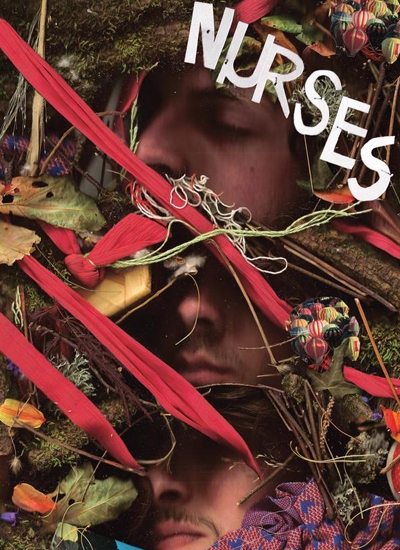
Hence, it only seems appropriate that the three members of Nurses — Aaron Chapman, John Bowers, and James Mitchell — would choose to settle down in Portland to craft their atypical brand of psychedelic pop music. After spending some time in Chicago and a snowed-in winter in Idaho, Bowers and Chapman chose to move together to Portland on an absolute whim.
“It just sounded like the right idea for almost no particular reason,” recalls multi-instrumentalist John Bowers, regarding the move.
Risk-taking and synchronicity seem to play a huge part in determining the career path of Nurses, who became re-acquainted with drummer James Mitchell by what could either be considered fate or luck of the draw. Despite sharing mutual friends with Mitchell when living in Southern California, Bowers and Chapman never really knew him until moving to Portland and realizing he was just about the only person they knew in the city. Mitchell offered the two his couch, and from there, the three became well-acquainted, with Mitchell’s drumming chops soon rounding out the newly-reformed three-piece.
“We didn’t know each other at all. [James] was just really nice. We got along, hung out a lot, got offered a show, and decided to start playing music together pretty quickly,” says Bowers. “It was funny.”
Listen to “Caterpillar Playground” – DOWNLOAD MP3
Nurses’ previous disc, 2007’s Hangin’ Nothin’ But Our Hands Down, is by no means generic, but generally falls into “conventional” indie rock territory. Their newest disc, however, takes the band to a drastically different place. The music on Apple’s Acre is reminiscent of a less rambunctious Animal Collective sprinkled with hints of ’60s pop rock, resulting in an album for pop fans who have grown tired of traditional pop music.
By blending everything together in a way that turns layers of instrumentation, samples, and loops into structured tracks, Nurses create underlying backgrounds which teem with life. Keyboard crescendos, ambiguous vocal clippings, and electronic noises provide a solid — albeit unusual — foundation for the band to build off of. The resulting sound of Apple’s Acre is whimsical and imaginative, and it is one that the boys clearly feel at home with.
“The sound of the record is just what we’re into and we’re about now,” explains vocalist and guitarist Aaron Chapman. “The only tangible thing I can say is that we were less interested in traditional rock n’ roll instrumentation and just wanted to experiment more with different types of textures and sounds that would play the same role a bass guitar [or] electric guitar [would].”
To accomplish this, the band’s current setup departs from that of a typical three-piece with a bassist, a guitarist, and a drummer. Traditional instrumentation still plays a crucial role, of course, but the influence of additional gadgetry — which consists of too many things to list — is just as significant.
“We have this thing we call ‘The Pile’, and it’s a table full of electronics,” Chapman says, describing a massive grouping of everything from pedals to keyboards and samplers. “The Pile” is generally Bowers’ domain during the band’s live performances, and since the band’s instrumentation is an ever-evolving thing, they swap out and include whatever appropriate equipment they have lying around.
SUPPLEMENTARY VIEWING STATION
PITAGORA SUICHI
The album itself is littered with things that seem just as random. As if they were cracking inside jokes to themselves, Nurses have included a number of secret tributes throughout the album. For example, the title track, “Apple’s Acre,” begins and ends with a sample from a Japanese children’s show, Pitagora Suichi. The show features elaborate Rube Goldberg experiments in which marbles roll and pulleys operate to accomplish mundane tasks such as stamping pieces of paper or turning over cups.
“I think that [“Apple’s Acre”] reminded us of the feeling of watching [Pitagora Suichi], because it was recorded at the same time we were watching that weird show,” explains Bowers. Fanciful and peculiar, these Rube Goldberg experiments seem appropriate for the band to pay homage to, and the inclusion of the sample feels seamless.
The methodology of Nurses may not always be readily apparent, but there seems to be a reason for nearly everything they do. Lyrically, Nurses have given up linear storytelling for abstract implications, and in some cases, choose complete lyrical nonsense over sense. At times, Chapman’s voice also takes on a quality that makes it seem more like an unwieldy instrument than a human voice, rendering lyrics even less discernible, and therefore, even less useful in decoding the intended message.
“I feel like the origin of creativity and art and music are pretty abstract things… [so] we aren’t necessarily trying to tell the whole story with the lyrics. We do so musically and emotionally as well,” says Chapman. “You can get just as much from that, and you can interpret the lyrics however you want.
“That’s the way we ended up communicating abstractions, I guess… sort of… abstractly,” Chapman finishes jokingly.
What Nurses have created with Apple’s Acre is an album that feels like a storybook come to life. Whistling that can be mistaken for bird calls and layered vocals that chime like a chorus of munchkins give a child-like feeling of innocence and naiveté. It comes as no surprise, then, that films like Wizard of Oz contributed significantly to the creation of Apple’s Acre. The resulting disc is not just sonically rich, but visually rich as well. “Caterpillar Playground,” the album single, brings to mind images of children frolicking through colorful, psychedelic fields, and many other songs are just as visually-compelling. If making music that impacts multiple senses is the sign of a successful album, Nurses have made that successful album with Apple’s Acre.
“When I listen to our record, it’s a pretty visual experience,” shares Bowers. “I think it would be really awesome to have some visual accompaniment to everything we do musically.”
“We were less interested in traditional rock n’ roll instrumentation and just wanted to experiment more with different types of textures and sounds that would play the same role a bass guitar [or] electric guitar [would].” — Aaron Chapman, Nurses’ Vocalist & Guitarist
This easy translation from aural to visual might be the reason the trio is considering putting out a video for nearly every song on Apple’s Acre. The goal is not necessarily to create full-fledged videos for each track, but to create companion visuals. They will also go all out for their CD release show at the Holocene in Portland, where they intend to work with the multi-disciplinary artist who designed their album cover, Aidan Koch, and other artist friends to create an all-inclusive experience.
“We want to build a set and have it be almost a diorama feel… and also put projections on it,” describes Chapman. “The whole idea in the first place is that we want it to be less of a traditional rock show with band, band, band, and kind of want to make it a fun multimedia experience.”
From the opening track of the album, “Technicolor,” to the closing track, “Orange Cymbals,” Apple’s Acre in its entirety feels like a journey undertaken and completed. The lyrics of “Technicolor” hint to the start of a journey — not unlike Dorothy’s quest in Wizard of Oz — and the sparse, slightly melancholy sound of “Orange Cymbals” has a mysterious ring of finality to it. The album may not necessarily be a concept disc, but it certainly has the feel of one.
It has been less than a year since Nurses were signed to Secretly Canadian’s sister label, Dead Oceans, but things are moving quickly. In the near future, they will be looking more forwards than backwards. Not only do they plan on creating music videos and touring for most of the summer and fall, but they seem to be leaving their indie rock back catalog behind altogether. In fact, the band has consistently been working on new material despite being swamped with their album release, and their tour set will include nearly no old music. It will, remarkably, include some unreleased material that’s even newer than Apple’s Acre.
Diligent as they are, it’s hard to imagine the three chaps of Nurses being all business with their light-hearted sound. So, while bands usually conclude interviews with recycled words and generic messages of thanks, Nurses care not for such conventions.
Instead, they opt to share fantastical ideas. On how they hope to start a modern cult called “Casual Cult,” which runs like a pyramid scheme and has all the members knowing full well what they’re getting themselves into. On how one could play the ultimate practical joke with one’s last words on Earth, by ending it all with sentences like, “Been there, done that!” or, “Take a picture! It’ll last longer!”
Finally, and most importantly, they describe their plan for promoting the release of Apple’s Acre.
“We’re going to quit,” Bowers says simply. “The day it comes out, we’re going to plan a mass quit. We’re getting as many bands as we possibly can to quit with us.”
Nurses are definitely tackling this album’s release with some serious work ethic, but it’s painfully obvious; they know how to have fun doing it.
END.

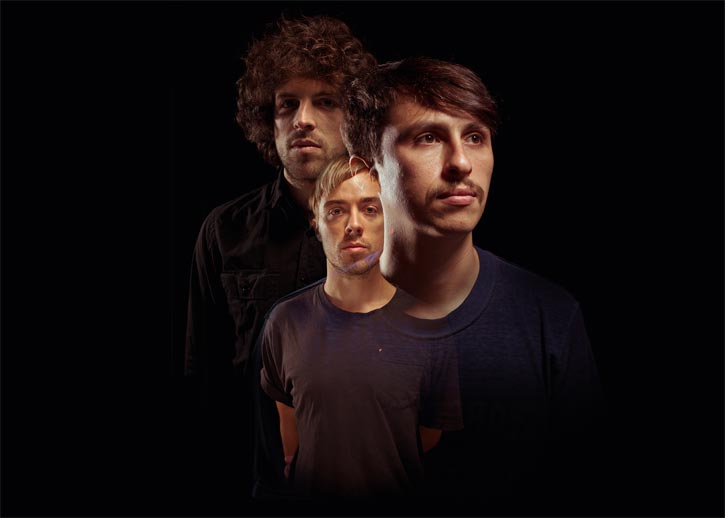


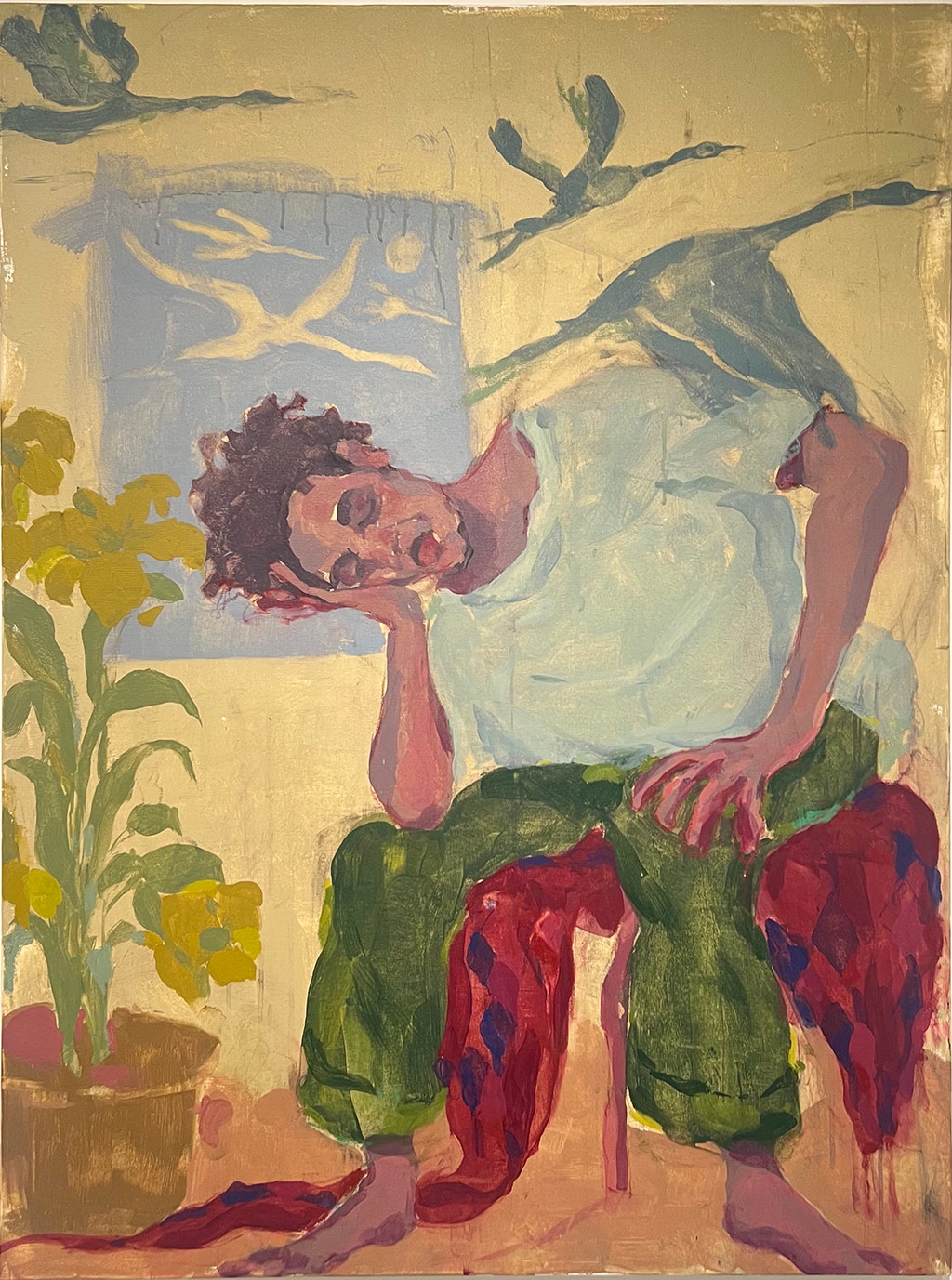
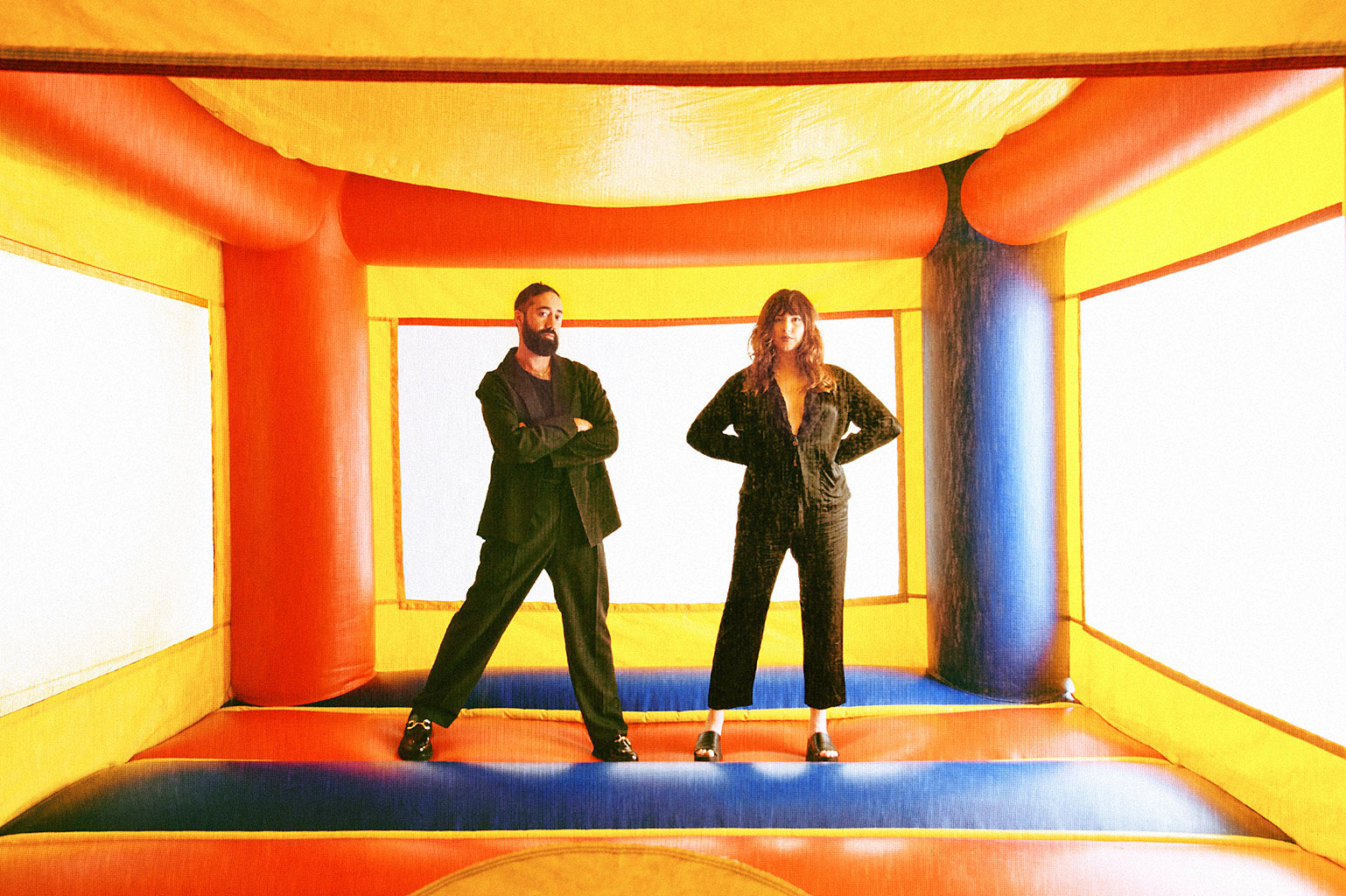
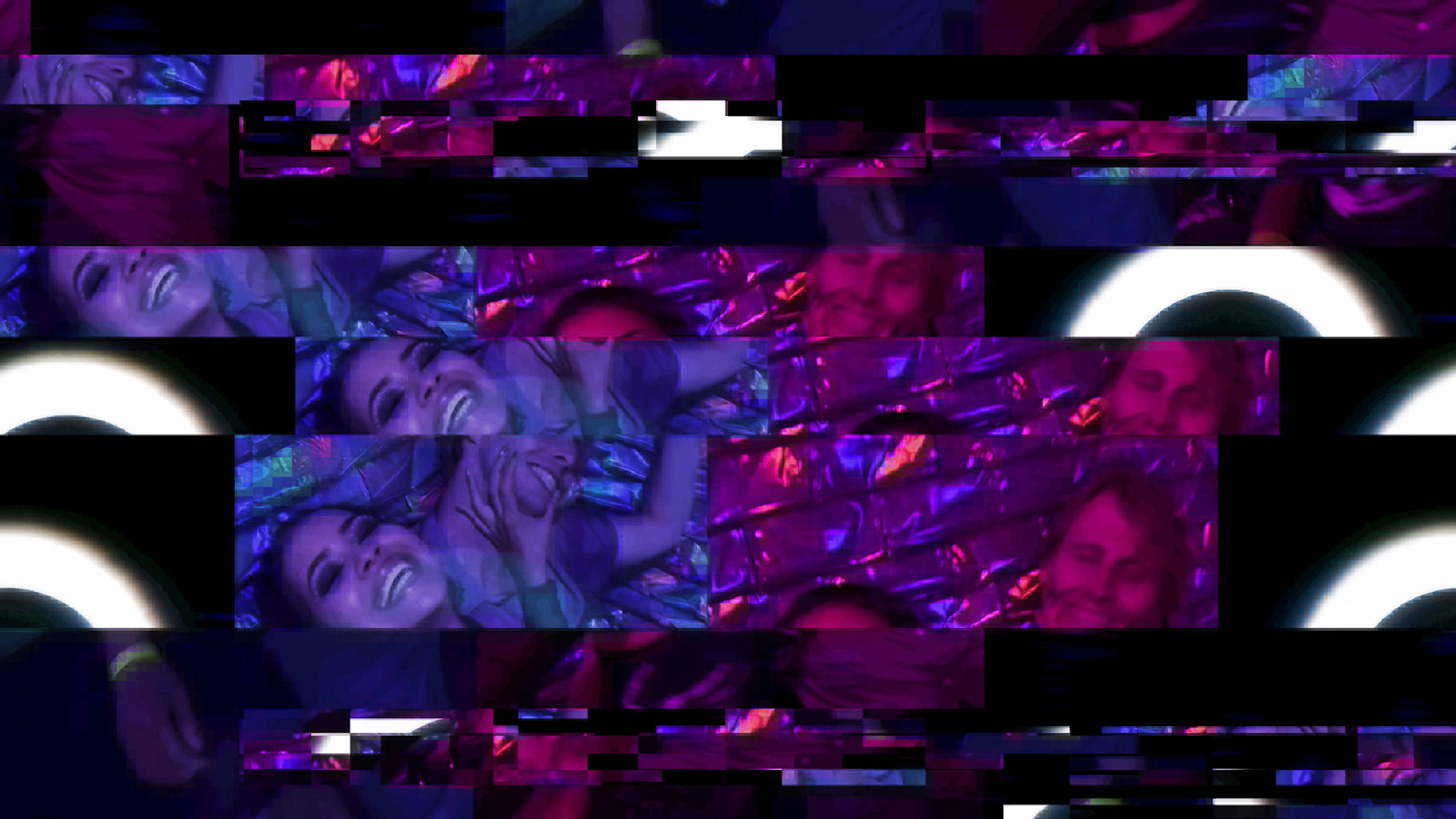
Sculpting the buns! haha, great interview. Fun terminology that this band has. 🙂
[…] of 2011 podcast where we put two of their tracks in our top 10 songs. You can also check out this link for some great beta on the […]
[…] Nurses. Check them out in this interview here: http://www.redefinemag.com/2012/nurses-band-interview-dracula-apples-acre/ […]